Advertisement

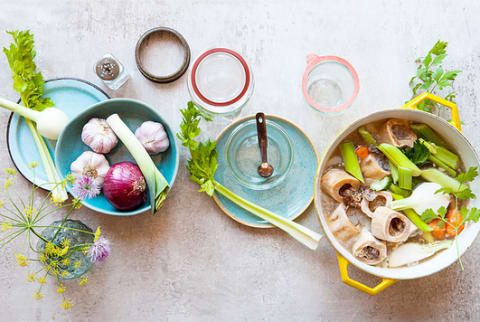
It seems like inflammation is at the root of everything these days, from allergies to chronic health conditions. The best way to combat inflammation is to keep up the fight on a daily basis, incorporating foods that calm your body. We reached out to some of the country's top functional doctors to get their top picks.
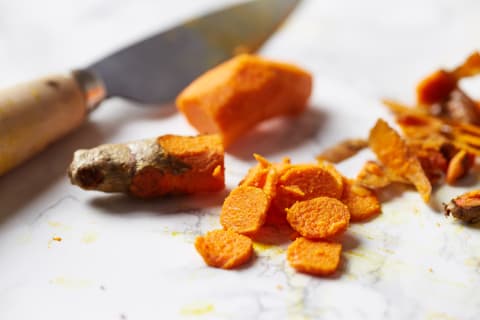
Turmeric
Turmeric is the most potent anti-inflammatory on the earth. I add turmeric root to my bone broth and vegan soups, and juice it in my medicinal shakes. I add one teaspoon of organic curcumin powder to my meals.
—Sara Gottfried, M.D., mbg class instructor and author of Younger
My favorite anti-inflammatory food is my golden milk: turmeric, honey, and a little nondairy milk to keep me warm and healthy!
—Taz Bhatia, M.D., founder of CentreSpringMD and mbg class instructor
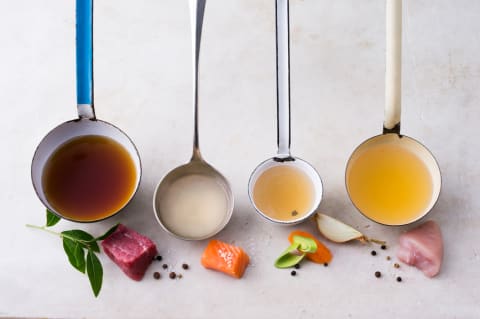
Bone Broth
I like to begin the healing process for lowering inflammation with bone broth made from chicken feet, onion, celery, sage, sea salt, thyme, rosemary, a chicken carcass, and vinegar to help draw out the minerals from the bones into the broth. I like to serve the broth, turmeric, ginger, a couple twists of black pepper and coconut milk. The combination of broth, minerals, spices, and turmeric lower inflammation and helps heal the gut—plus, it's delicious!
—Terry Wahls, M.D., mbg class instructor
Bone broth is full of gelatin and collagen, which soothes the intestinal tract and helps heal leaky gut. The gelatin and collagen also support your joints and bones and reduce inflammation throughout your body. And it is so easy to incorporate into your diet as a base for soups and stews.
—Frank Lipman, M.D., founder of Eleven Eleven Wellness and mbg class instructor
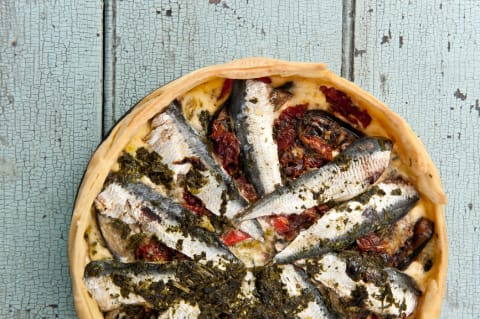
Sardines
Sardines are my top anti-inflammatory food. They are one of the world's best sources of omega-3 fatty acids, containing 1.3 grams or more per serving. They have an optimal 4:1 ratio of omega-6 fatty acids to omega-3 fatty acids. They are a fantastic source of B12, phosphorous, calcium, and vitamin D. Plus, they're low on the food chain, so mercury contamination is not an issue. Get fresh sardines, grill with lemon and Maldon sea salt, and serve over a big salad, and you have one of nature's perfect meals.
—Robin Berzin, M.D., founder of Parsley Health, and instructor of The Ultimate Stress Solution
Inflammation is at the root of all disease. To fight inflammation, aside from avoiding excess sugar, processed foods, artificial sweeteners, and saturated fat, I recommend: sardines! I attribute my grandfather's Mediterranean diet, in which he regularly included sardines, for his longevity (99 years) and sharp mind up until the end. In fact, their richness in omega-3s, vitamin D, and vitamin B12, reduce inflammation while protecting the brain, heart, and bones. They are a great source of minerals: calcium, phosphorus, and selenium (which supports healthy thyroid function). They also help lower triglycerides and raise HDL (good cholesterol) levels. If you're thinking small tin cans, I challenge you to look for sardines at your local supermarket or seafood store when they are in season. They can be much bigger than that (ranging in size from 4 inches up to 9) and are easy to prepare with a little olive oil, Himalayan sea salt, and cracked black pepper on the grill. Of course, you can also buy them canned in water, olive oil, and even in tomato sauce or with spices.
—Vincent Pedre, M.D., and author of Happy Gut
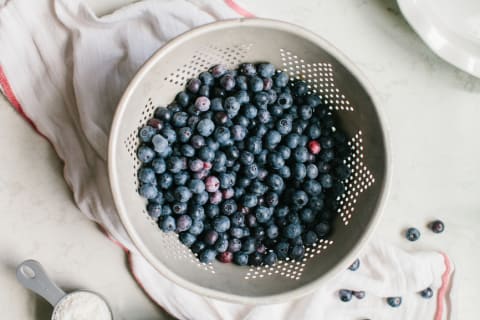
Blueberry, Ginger, and Green Tea
There are many pro-inflammatory cells in your body, one in particular is nuclear factor kappa B, also known as NF-kB. When this is activated, it can trigger a variety of inflammatory cascades leading to a number of health problems. The food you eat can either feed inflammation or fight it. Therefore, including key NF-kB-fighting foods in your diet are key—I like blueberries, ginger, and green tea. In addition, vitamins B12, folate, C, D, and healthy fats all fight inflammation as well, so make sure you are getting in plenty of green leafy vegetables, grass-fed beef, and wild-caught fish.
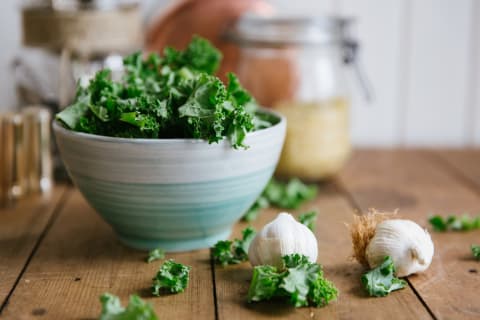
Kale
I love the texture and taste of kale sauteed in coconut oil to bring out optimal absorption of fat-soluble vitamins like A, D, E, and K. It's high in antioxidants like vitamin C, flavonoids (like quercetin), and polyphenols. It also contains cancer-fighting ingredients like indole-3-carbinol and sulforaphane, which are also great "liver foods" to help remove excess estrogens and balance hormones. You can also make kale chips by using a dehydrator or by spreading raw kale leaves on a tray, sprinkle with olive oil, and bake for 5 to 10 minutes.